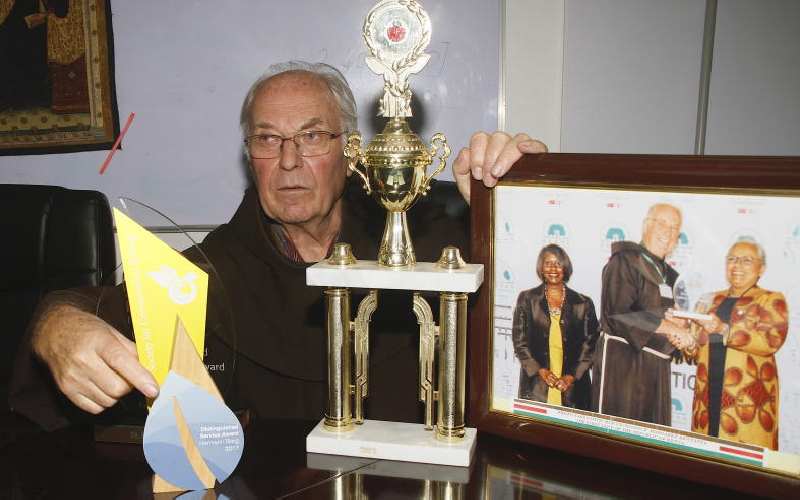×
The Standard e-Paper
Join Thousands Daily

Environmentalist Franciscan Father Harmann Borg Founder of Mother Earth Network during the interview at their residence in Westlands. [ Jenipher Wachie, Standard]
Since he set his foot in Kenya in 1983, Father Hermann Borg had his mindset on two things: the pastoral assignment as a missionary and rehabilitation of the degraded environment.